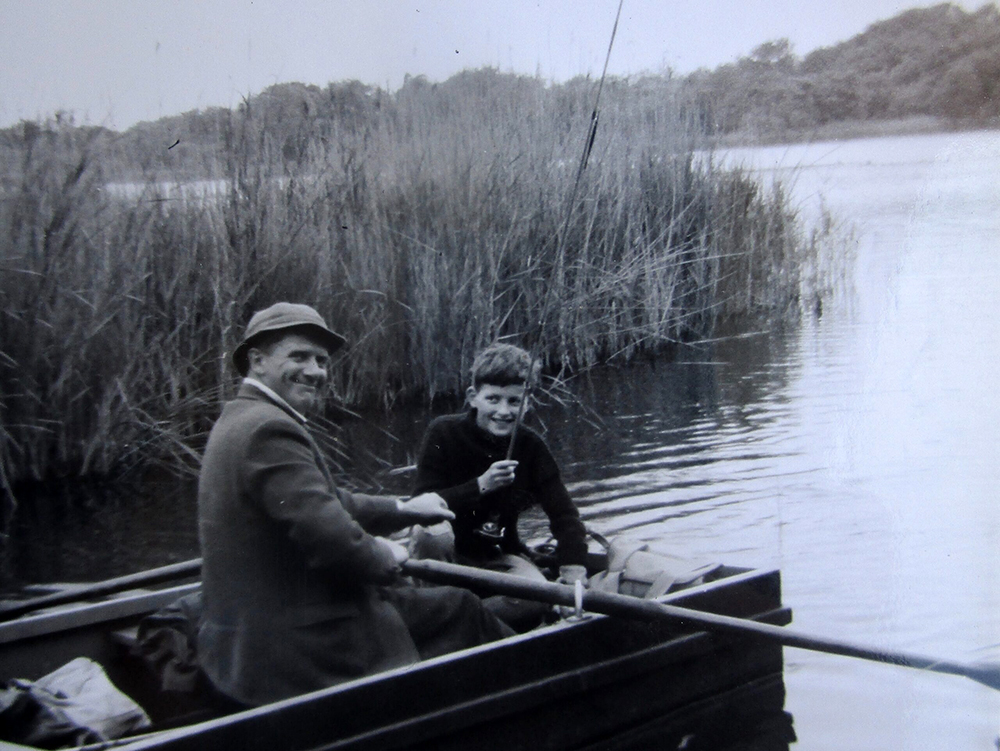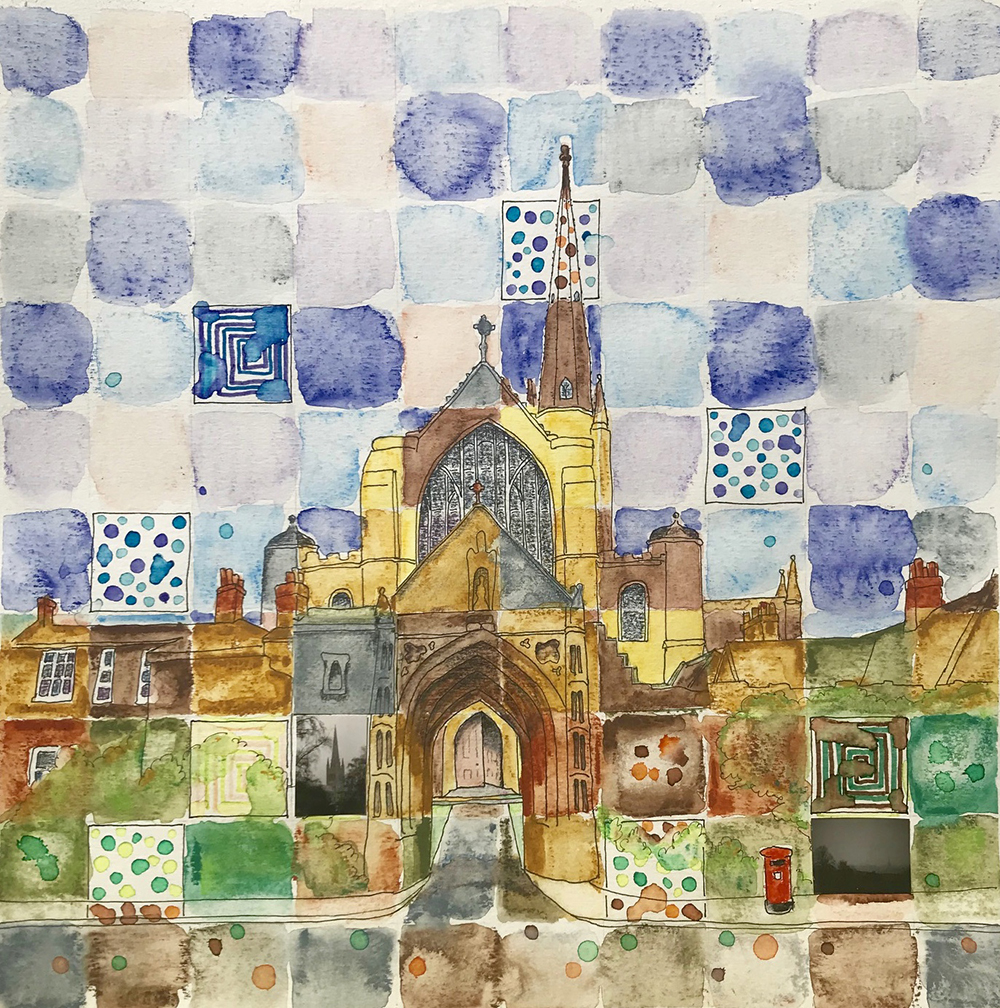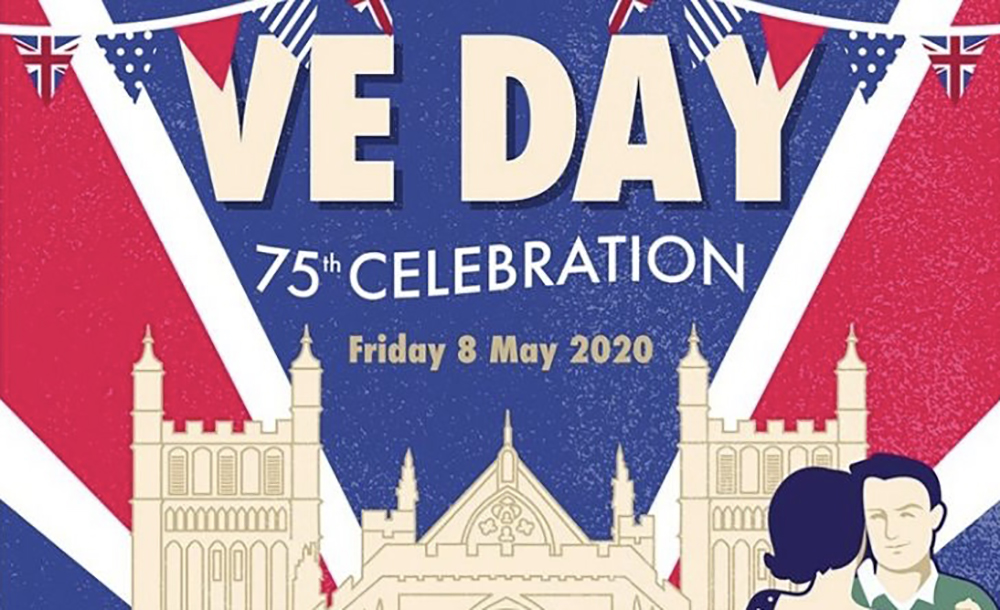Geneva, Sunday 10 May 2020

In 1979, I was a final year medical student. I went home for the Christmas break. My father had been in rural general practice for nearly thirty years. His hundreds of patients were spread over a wide country community. He knew them all by name and, often, by diagnosis as well. He asked me if I wanted to go with him on his round of home visits. I thought I would learn little about medicine but it would be fun to accompany him. Inevitably, as it turned out, he would give me a very important lesson in what medicine was really about.
The bitter north wind had frozen the puddles on the rutted track. Our old Renault 4 bumped and slid its way toward the farmhouse. Cows hung about with hoofs in mud, backs turned to the biting wind and heads hung low. It was milking time. My father explained that, two days before, he had been called to see the farmer’s six year-old son. The boy, the oldest of three children, had pneumonia and needed a course of antibiotics. As we arrived, the farmer came out of the back door and disappeared into the cow-shed. I asked my father why he had not sent the child to the paediatric ward in Norwich. “Think about it.” he said. “The child goes into hospital. The mother has to go with him. The father has 60 cows to milk twice a day. And by the way, he’s an angry man. What’s going to happen to the two younger children?” That stumped me. “But I might have to send the boy in if he’s not improved today. And we’ll somehow have to keep an eye on this farmhouse.” As we got out of the car, I noticed the mother at the kitchen window putting the kettle on. I also noticed that my father had already slipped his stethoscope inside his shirt front. “This is a very difficult child!” he said more to himself. I could see he was concerned.
The mother welcomed us in; they were clearly not well-off. The three children, bundled up in pullovers and scarves, sat around a single-bar electric heater watching TV. The older boy, looking a bit flushed, had a blanket wrapped tightly around him that he pulled tighter the moment he caught sight of us. My father took his coat off and washed his hands in a bowl that the mother had filled with hot water. He turned to me and whispered “You see old boy, with a child like this, if your hands or your stethoscope are cold, you’ve no chance.” I realised that getting anywhere near to hearing air entry to this child’s lungs would be a mighty challenge. And a big decision hung on it.
My father sat down next to the boy who recoiled deeper into the grubby sofa. Instructions were given that the TV be switched off and the other kids be shooed from the room. Unnoticed, a thermometer made its way into the boy’s mouth. My father started to chat to the mother. Yes isn’t it a cold winter. Norwich City lost again at the weekend. A cup of tea would be very nice thank you. etc. etc. “And do you have a candle and some matches?” has asked. The mother rattled around in the kitchen for a while. I looked back at the boy. I couldn’t believe it. Taking advantage of the distraction brought by all the noise and chatter, my father had managed to slide his hand and stethoscope inside the blanket and up under the boy’s pyjama shirt. “Now, young man” he said removing the thermometer and glancing at it, “Take some deep breaths.” The boy looked at him with great suspicion and held his breath. He’d fallen for the thermometer trick; further complicity was out of the question.
The mother returned carrying a tray with cups of tea, a candle and matches. My father asked me to light the candle. “Now, old boy, would you be so kind as to hold the candle three feet from this young man’s nose.” Turning to the boy, he said “Go on, now, blow out the candle!” The boy took a big breath in and blew. The candle was still alight. “Go on, you can do better than that. Blow harder! Nearly there! Try again!” I could see that the stethoscope was being moved around the boys chest with each attempt to blow out the candle. We got about seven good breaths before he managed to extinguish the flame but by then he was onto our game and sullenly held his breath again. Nevertheless, the good doctor had got a real good listen to the boy’s lungs. It wasn’t necessary to send him to hospital.
In 1989, I was working as a surgeon in a hospital on the Afghan border of Pakistan for war-wounded run by the International Committee of the Red Cross. One of my patients was a ten year old boy who had been shot through the right side of his chest. (For those interested, an AK47 might shoot a high energy military bullet but if it’s stable in flight – for example, at longer range – it can pass clean through the body doing surprisingly little damage.) This boy arrived with us three days after his injury. He had a haemo-pneumothorax meaning that his lung had collapsed leaking both blood and air into the chest cavity. He was not too sick and all he needed was some anitiotics and a thick tube drain inserted between his ribs to allow the blood and extravasated air to escape and the lung to expand. After four days, he was doing fine and we thought maybe the tube could come out; he would then need a few days of physiotherapy. However, the boy’s father became very agitated saying he was going to take the boy out that morning. He had to get home far inside Afghanistan – a three day bus journey – because he was worried about his family. I explained via our Afghan nurses that if the boy’s injured lung was not inflating properly, it would be dangerous to take him on such a journey. The discussion became quite heated. I sat on the boy’s bed, took out my stethoscope, put it on his chest and told him to take some deep breaths. He did what all Afghans do when told to take deep breaths; he vigorously moved his shoulers up and down without actually moving any air. So I asked for a candle. The boy went home.
Hoping all readers of this Diary are well, safe and happy.




